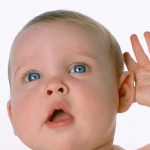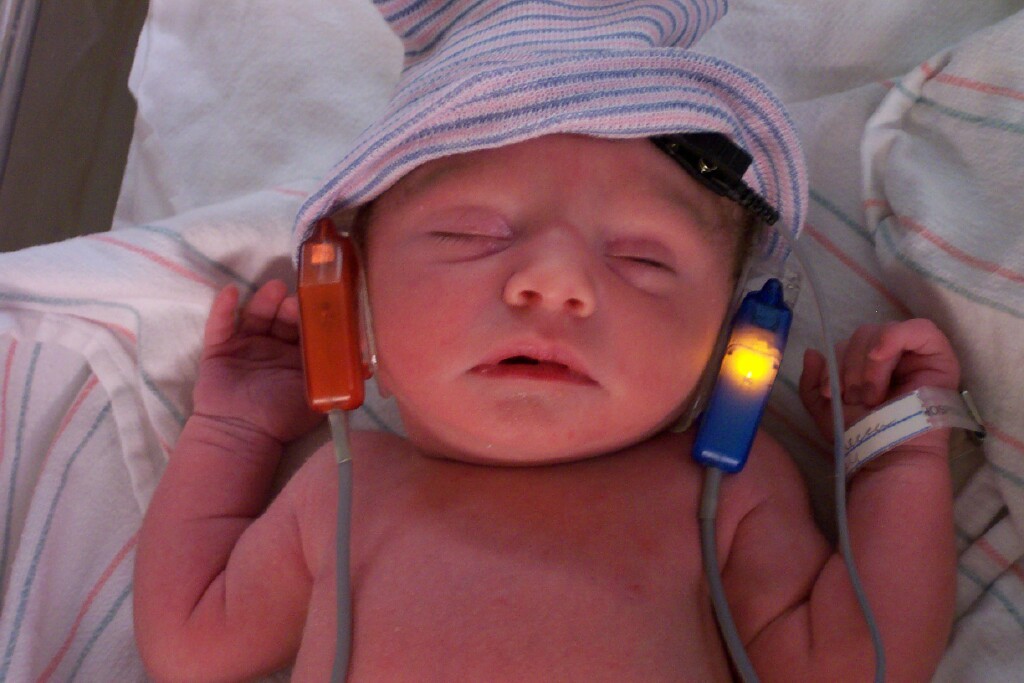What Can A Newborn Hearing Test Tell You?

What Can A Newborn Hearing Test Tell You?
In one word? Plenty! According to the National Center for Hearing Assessment and Management at Utah State University, “Left undetected, hearing impairments in infants can negatively impact speech and language acquisition, academic achievement, and social and emotional development.” When a newborn is tested and diagnosed with hearing loss early, there are effective intervention strategies to help your child achieve normal, or nearly normal speech, language and hearing milestones as she grows up.
A Newborn Hearing Test?
Did you know that newborn hearing loss is one of the most frequently occurring disorders present at birth? 3 babies out of 1000 are born with some degree of hearing loss. Babies begin to learn from the minute they are born, and one of the ways they take in the world is through hearing. Most hospitals conduct a newborn hearing test before the baby is discharged from the hospital. You can expect the results of the hearing test to be included in your child’s medical records by the time you leave the hospital. If your child’s hearing test results are questionable or not within the normal range, your doctor will contact you for follow up and most likely refer you to an audiologist. Not all babies who test out of the norm are at risk for hearing loss – there are other factors that may have had an effect on the testing such as excess vernix in the ear, fluid in the ear, or even because your child was crying and wiggling too much for the testing to be completely accurate.
Even if your child passed her newborn hearing test with results in the normal range, it’s important to be aware of the hearing progress milestones to ensure that your bundle of joy is progressing normally. Sometimes hearing loss will show up later in childhood due to illness, chronic ear infections, or certain genetic conditions. Here are general hearing milestones:
Two months old
- Startles to loud noises
- Quiets down to familiar voices
- Starts to sound vowel sounds such as “ohh”
Four months old
- Begins to look around for source of sound
- Starts cooing and babbling
- Squeals and giggles
Six months old
- Turns head toward loud sounds
- Begins to imitate speech sounds
- Begins to make a babbling speech sound such as “ba-ba”
Nine months old
- Imitates speech sounds of others
- Understands “no-no” or “bye-bye”
- Turns head towards quiet sounds
One year old
- Responds to singing or music
- Begins to correctly use “ma ma” or “da da”
For additional information and details about testing and intervention programs for newborns, check out the U.S. Department of Health and Human Services Online Report for Newborn Hearing Screening.



